Floating on the turquoise waters of the Pacific Ocean while staring at the moon sounds fun, doesn’t it? How about doing that with no food or water for over a year in complete solitude? There is only one person out there who did this and survived to tell the tale. That man is José Salvador Alvarenga. On November 17, 2012, he left for what was supposed to be a short fishing excursion off the coast of Mexico. Things quickly took a horrible turn for the worse, however, once out on the water. Read here to find out what exactly happened and how Alvarenga made it out alive 438 days later.
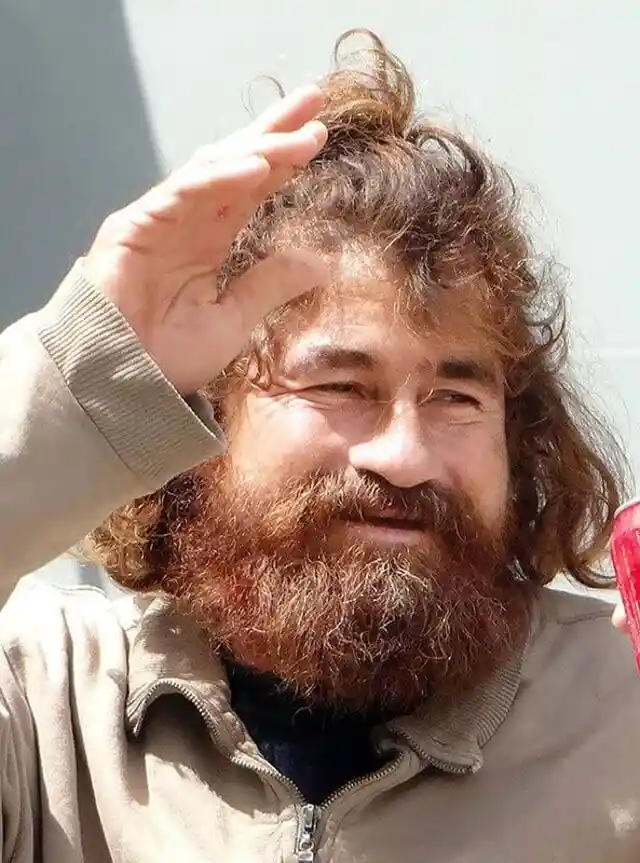
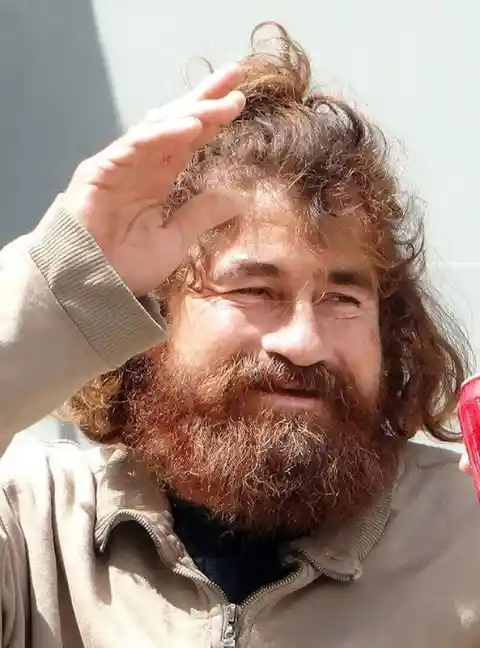
Floating on the turquoise waters of the Pacific Ocean while staring at the moon sounds fun, doesn’t it? How about doing that with no food or water for over a year in complete solitude? There is only one person out there who did this and survived to tell the tale. That man is José Salvador Alvarenga. On November 17, 2012, he left for what was supposed to be a short fishing excursion off the coast of Mexico. Things quickly took a horrible turn for the worse, however, once out on the water. Read here to find out what exactly happened and how Alvarenga made it out alive 438 days later.
In November 2012, José Salvador Alvarenga, a 35-year-old experienced sailor, and fisherman from El Salvador began planning a small fishing expedition with his friend and frequent fishing companion Ray Perez. The men were scheduled to leave a village called Costa Azul, off the coast of Chiapas, Mexico. The plan was to go on an overnight deep-sea fishing expedition in the Pacific Ocean and return about 30 hours later. Their goal was to come back with a nice catch of fresh tuna, mahi-mahi, marlins, sailfish, and even shark. This would hopefully provide a week’s worth of income.
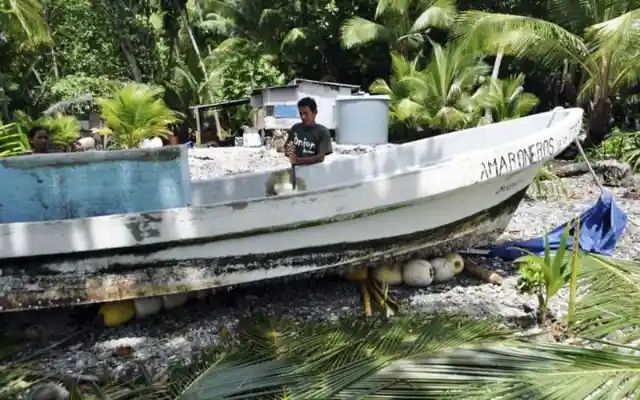
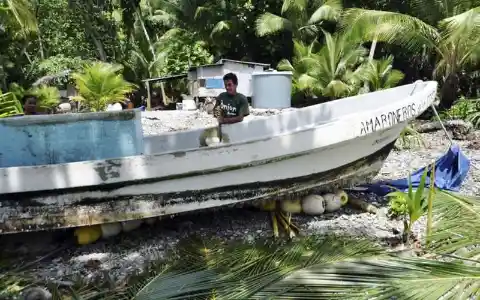
In November 2012, José Salvador Alvarenga, a 35-year-old experienced sailor, and fisherman from El Salvador began planning a small fishing expedition with his friend and frequent fishing companion Ray Perez. The men were scheduled to leave a village called Costa Azul, off the coast of Chiapas, Mexico. The plan was to go on an overnight deep-sea fishing expedition in the Pacific Ocean and return about 30 hours later. Their goal was to come back with a nice catch of fresh tuna, mahi-mahi, marlins, sailfish, and even shark. This would hopefully provide a week’s worth of income.
Ray Perez and José Salvador Alvarenga prepared their 24 foot (7 meters) boat. They also equipped it with a huge icebox made of fiberglass to store the fish and checked to make sure that the boat’s single motor was in working order. Unfortunately, Perez had to back out of the fishing expedition last minute. Still super eager to go out to sea, Alvarenga decided he would find another fisherman to accompany him. He wasn’t sure he would find someone on such short notice.
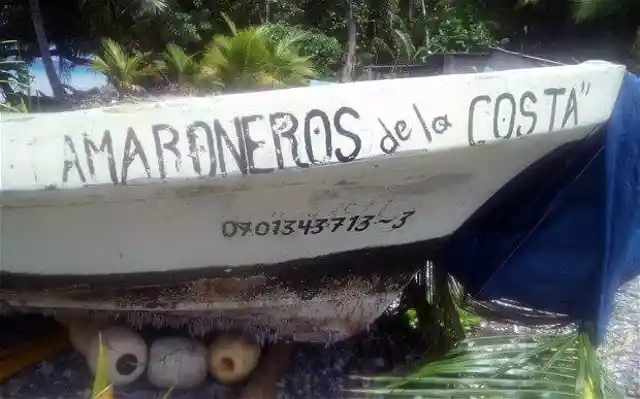
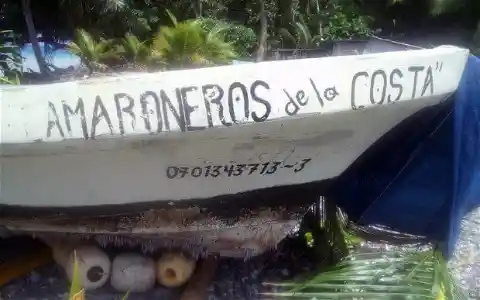
Ray Perez and José Salvador Alvarenga prepared their 24 foot (7 meters) boat. They also equipped it with a huge icebox made of fiberglass to store the fish and checked to make sure that the boat’s single motor was in working order. Unfortunately, Perez had to back out of the fishing expedition last minute. Still super eager to go out to sea, Alvarenga decided he would find another fisherman to accompany him. He wasn’t sure he would find someone on such short notice.
Alvarenga started asking around to find the right man who was physically fit to endure the short but intense overnight trip. Well, as luck would have it, Ezequiel Córdoba rose to the occasion for an agreed sum of $50. Córdoba, a 23-year-old man nicknamed Piñata by the village locals, lived on the far end of the lagoon and was well known for his skills as a soccer player on the village team. The two had never met before, let alone worked together, but Alvarenga believed they would be fine because of his own expert experience.
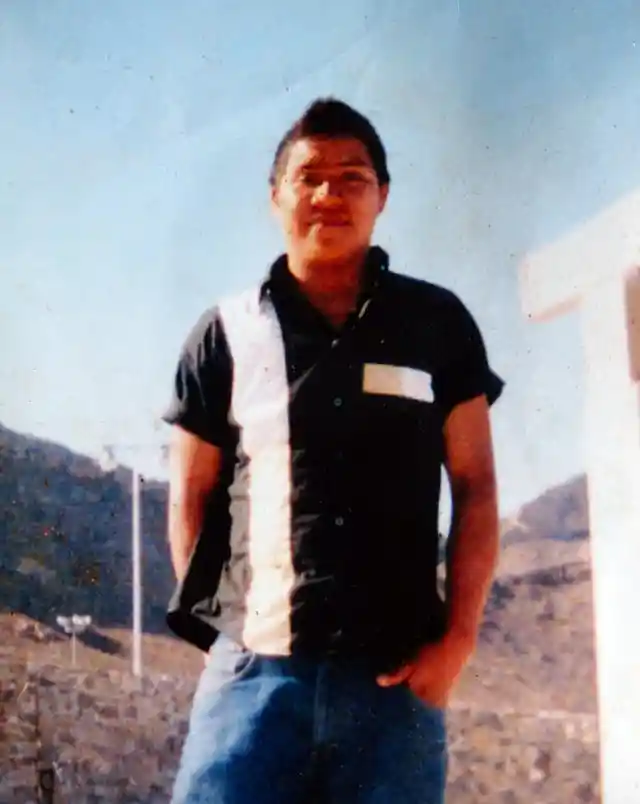
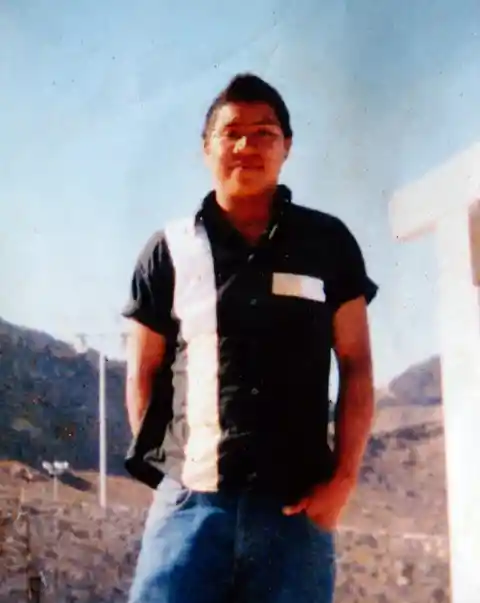
Alvarenga started asking around to find the right man who was physically fit to endure the short but intense overnight trip. Well, as luck would have it, Ezequiel Córdoba rose to the occasion for an agreed sum of $50. Córdoba, a 23-year-old man nicknamed Piñata by the village locals, lived on the far end of the lagoon and was well known for his skills as a soccer player on the village team. The two had never met before, let alone worked together, but Alvarenga believed they would be fine because of his own expert experience.
Judging by his years of experience, José Alvarenga didn’t think it would be a long or particularly complicated fishing trip. He believed 30 hours was enough time to catch enough fish without having to spend too long out on the ocean. Anyway, the small fishing boat was low and uncovered and therefore unable to weather any storms. Seeing that there wasn’t too much rain at that time of year in the region, Alvarenga believed they were playing it safe. What’s more, the men didn’t think it was necessary to check if all the electronic and technical devices on board were in perfect working order. The GPS wasn’t waterproof and the two-way battery was half empty, but Alvarenga never encountered any issues in the past so off they went to catch some fish. He also had his mobile phone, which he stored in a packet to keep dry.
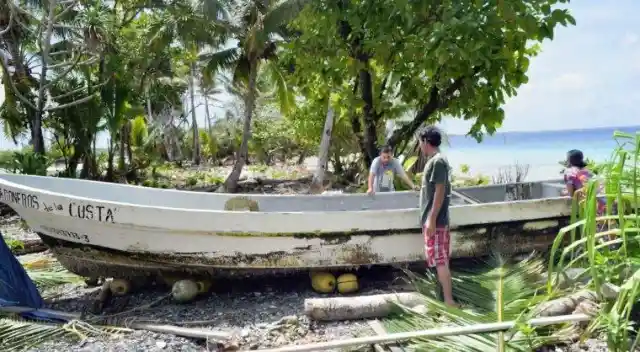
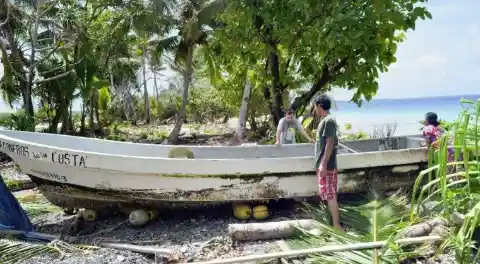
Judging by his years of experience, José Alvarenga didn’t think it would be a long or particularly complicated fishing trip. He believed 30 hours was enough time to catch enough fish without having to spend too long out on the ocean. Anyway, the small fishing boat was low and uncovered and therefore unable to weather any storms. Seeing that there wasn’t too much rain at that time of year in the region, Alvarenga believed they were playing it safe. What’s more, the men didn’t think it was necessary to check if all the electronic and technical devices on board were in perfect working order. The GPS wasn’t waterproof and the two-way battery was half empty, but Alvarenga never encountered any issues in the past so off they went to catch some fish. He also had his mobile phone, which he stored in a packet to keep dry.
The men set off on November 17, 2012, for what initially proved to be a very productive fishing trip. The boat was equipped with 70 gallons (265 liters) of gasoline, 16 gallons (61 liters) of water, 50 pounds (23 kg) of sardines for bait, and 200 pounds (91 kg) of ice. They also had 700 hooks, three buckets, lots of fishing line, one harpoon, three knives, and several wrenches for the motor. By the next day, they had caught 1,100 pounds (500 kg), which filled up the cooler to capacity. The bounty was so heavy that the boat felt unstable, so the men decided to make their way back to shore. That’s when things took a turn for the worse.
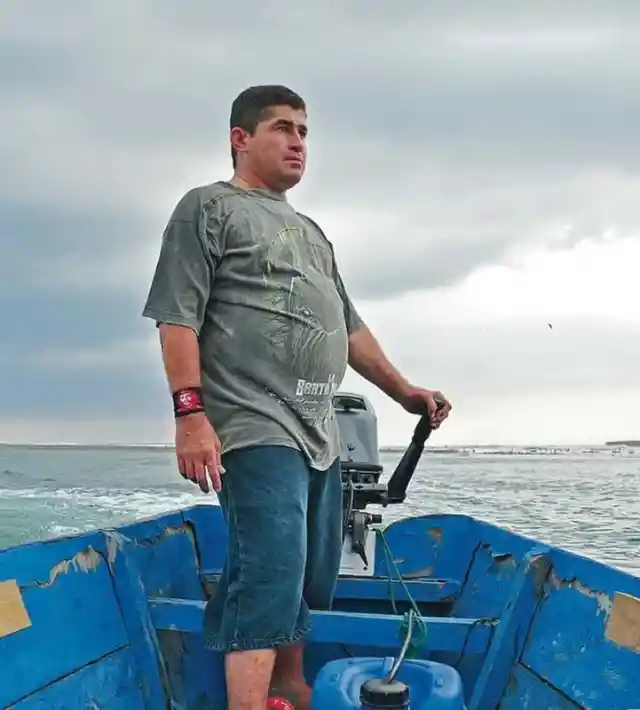
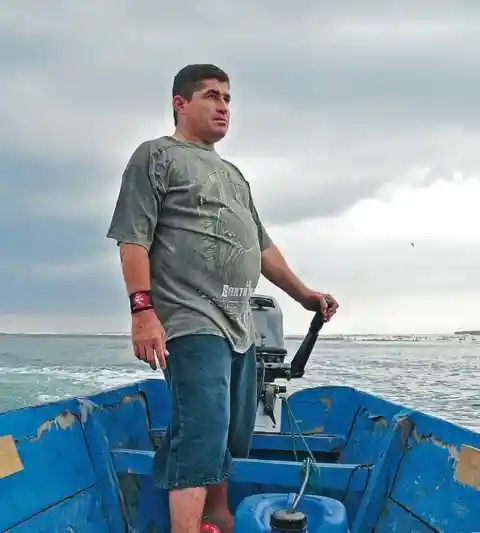
The men set off on November 17, 2012, for what initially proved to be a very productive fishing trip. The boat was equipped with 70 gallons (265 liters) of gasoline, 16 gallons (61 liters) of water, 50 pounds (23 kg) of sardines for bait, and 200 pounds (91 kg) of ice. They also had 700 hooks, three buckets, lots of fishing line, one harpoon, three knives, and several wrenches for the motor. By the next day, they had caught 1,100 pounds (500 kg), which filled up the cooler to capacity. The bounty was so heavy that the boat felt unstable, so the men decided to make their way back to shore. That’s when things took a turn for the worse.
A few hours into the last leg of the fishing trip, Alvarenga and Córdoba got caught in an unexpected and dangerous storm. It was uncommon for that time of year, but it came so quickly there was nothing they could really do to prepare themselves. The fishing boat wasn’t strong enough to withstand such towering and powerful waves, so the boat got pushed in the wrong direction. Hit again and again by waves, the men were terrified the boat would flip over or break in half. However, this was just the beginning of the dangers the fishermen would face.
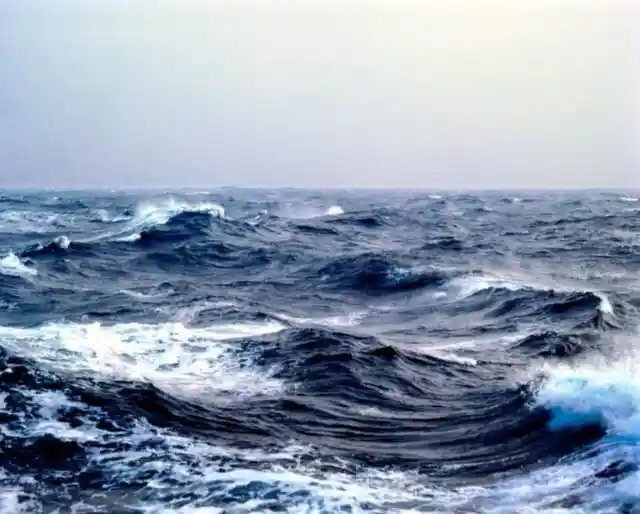
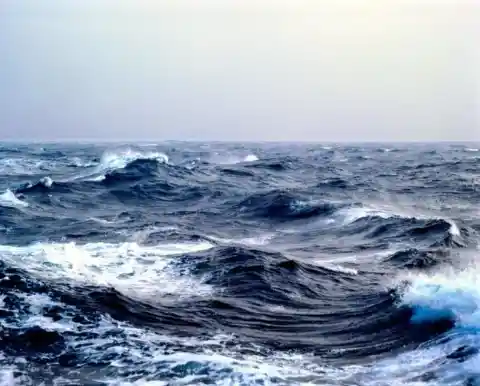
A few hours into the last leg of the fishing trip, Alvarenga and Córdoba got caught in an unexpected and dangerous storm. It was uncommon for that time of year, but it came so quickly there was nothing they could really do to prepare themselves. The fishing boat wasn’t strong enough to withstand such towering and powerful waves, so the boat got pushed in the wrong direction. Hit again and again by waves, the men were terrified the boat would flip over or break in half. However, this was just the beginning of the dangers the fishermen would face.
Ezequiel Córdoba, who was inexperienced, started panicking and frantically bailed the water out of the boat and even held onto the rail with both hands and screamed when his resolve faltered. Alvarenga, on the other hand, knew he had to stick to the primary task of steering them to safety, so he bravely navigated and aligned the boat through the storm. They were about 50 miles (80 km) out at sea, so Alvarenga was determined on getting them back to shore. He maneuvered the boat like a true sailor gliding through the waves while being tossed and turned violently through the waves. But, just as they thought they were in the clear, something else went wrong.
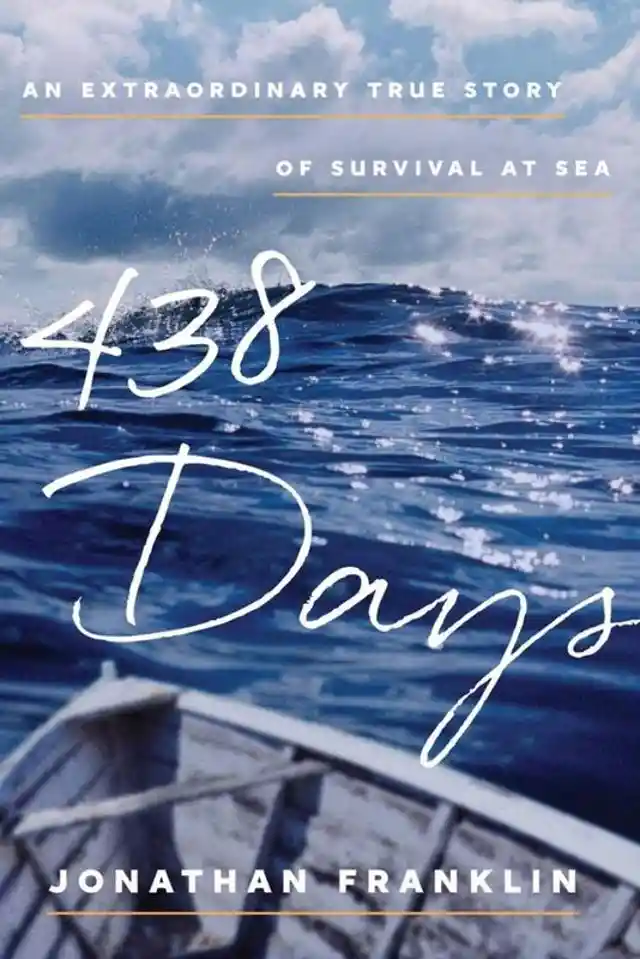
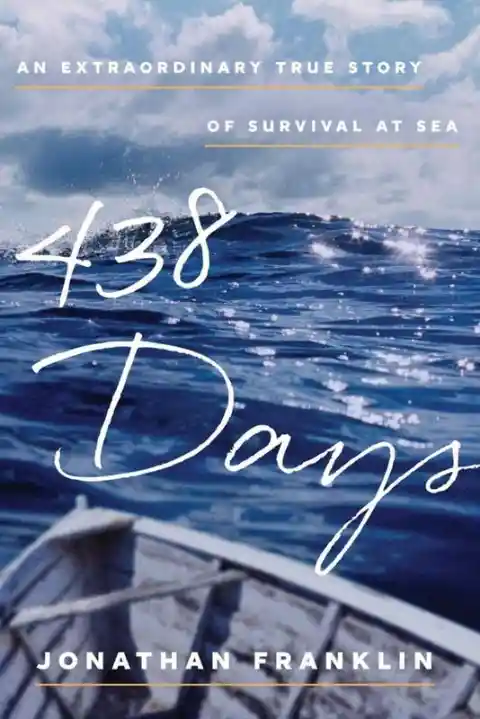
Ezequiel Córdoba, who was inexperienced, started panicking and frantically bailed the water out of the boat and even held onto the rail with both hands and screamed when his resolve faltered. Alvarenga, on the other hand, knew he had to stick to the primary task of steering them to safety, so he bravely navigated and aligned the boat through the storm. They were about 50 miles (80 km) out at sea, so Alvarenga was determined on getting them back to shore. He maneuvered the boat like a true sailor gliding through the waves while being tossed and turned violently through the waves. But, just as they thought they were in the clear, something else went wrong.
Just when Alvarenga and Córdoba spotted the silhouette of a mountain on the horizon, the engine started making all kinds of noises. The engine was crucial because it would take two hours to reach land. They tried to fix it, but after a few moments, the engine broke down, leaving them stranded in the middle of the ocean. Up until this moment, Alvarenga hadn’t shown any signs of weakness, but when the engine gave up on them, he also started to panic. He knew he had to act immediately and recalled that they had the radio on board.
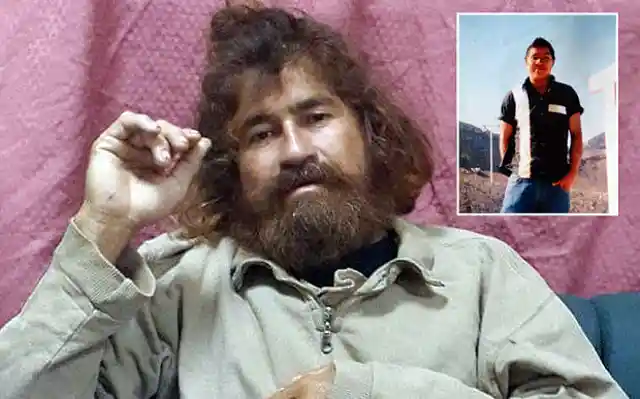
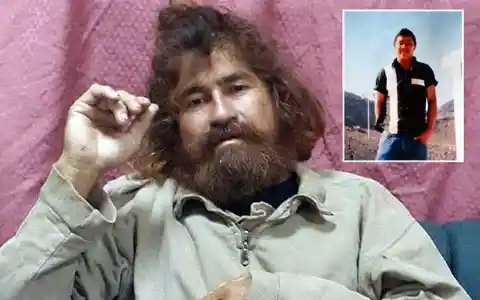
Just when Alvarenga and Córdoba spotted the silhouette of a mountain on the horizon, the engine started making all kinds of noises. The engine was crucial because it would take two hours to reach land. They tried to fix it, but after a few moments, the engine broke down, leaving them stranded in the middle of the ocean. Up until this moment, Alvarenga hadn’t shown any signs of weakness, but when the engine gave up on them, he also started to panic. He knew he had to act immediately and recalled that they had the radio on board.
José Alvarenga frantically turned on the radio to send out an SOS to his boss, Willy. He had no time to waste seeing that the radio’s battery was only half-charged. Luckily, Willy answered immediately and heard Alvarenga screaming, “Willy! Willy! Willy. The motor is ruined!” “Calm down, man, give me your coordinates,” Willy replied after he was up to speed with what happened. He wanted to send a search team out immediately to save them, but he needed their location. Unfortunately for them, that wasn’t going to be possible.
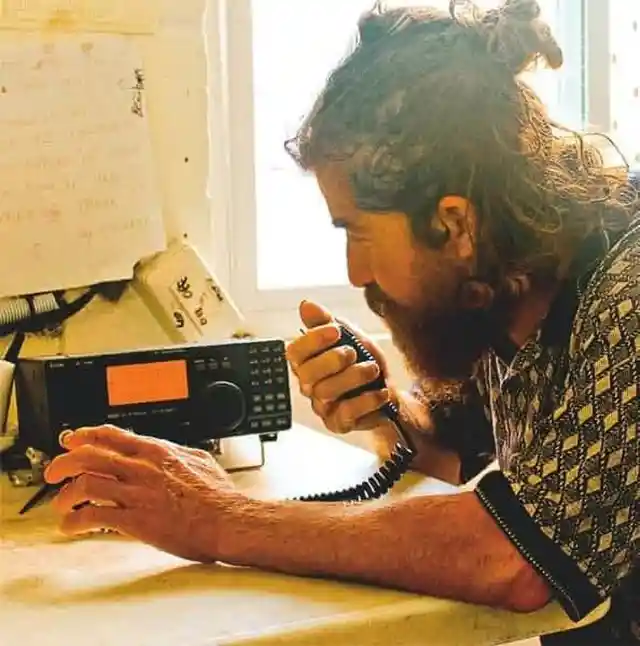
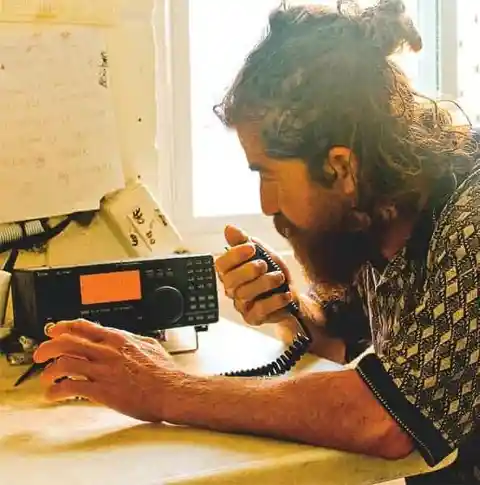
José Alvarenga frantically turned on the radio to send out an SOS to his boss, Willy. He had no time to waste seeing that the radio’s battery was only half-charged. Luckily, Willy answered immediately and heard Alvarenga screaming, “Willy! Willy! Willy. The motor is ruined!” “Calm down, man, give me your coordinates,” Willy replied after he was up to speed with what happened. He wanted to send a search team out immediately to save them, but he needed their location. Unfortunately for them, that wasn’t going to be possible.
Their luck kept running run because after Willy asked Alvarenga to look on the GPS to give him a location, Córdoba discovered that it wasn’t functioning anymore. Seeing that the device wasn’t waterproof, it must have gotten damaged in the storm. They were running out of ideas and time, so Willy told them to lay an anchor so that it’d be easier to find them, but lo and behold, they didn’t have one. Alvarenga noticed it was missing before they set off, but he didn’t think it was necessary because of his past deep-sea fishing excursions. Willy promised they’d come for them when he heard Alvarenga’s last words on the radio transmission: “Come now, I am really getting f***ed out here!”
Their luck kept running run because after Willy asked Alvarenga to look on the GPS to give him a location, Córdoba discovered that it wasn’t functioning anymore.
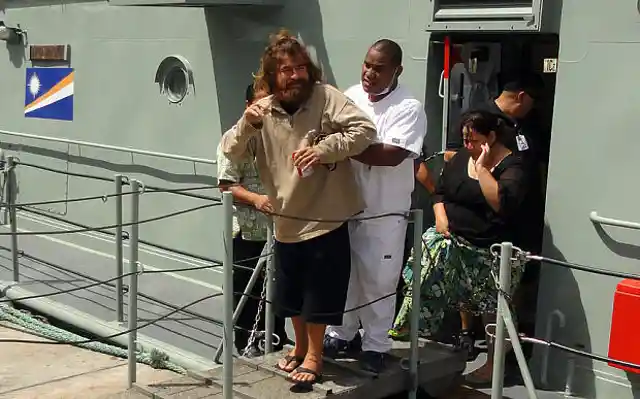
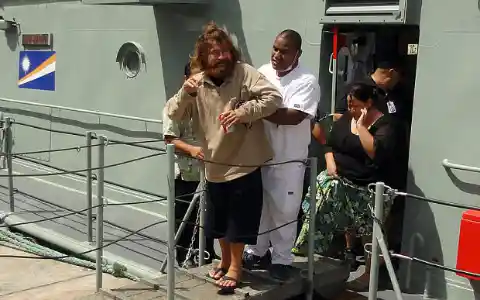
Seeing that the device wasn’t waterproof, it must have gotten damaged in the storm. They were running out of ideas and time, so Willy told them to lay an anchor so that it’d be easier to find them, but lo and behold, they didn’t have one. Alvarenga noticed it was missing before they set off, but he didn’t think it was necessary because of his past deep-sea fishing excursions. Willy promised they’d come for them when he heard Alvarenga’s last words on the radio transmission: “Come now, I am really getting f***ed out here!”
Willy reported the emergency right away to the Chiapas authorities. A search boat was sent out to look for the men, but without an exact location of their whereabouts, it proved to be very difficult to find them. Eventually, an airborne search team was launched, which spent about 48 hours looking for José Alvarenga’s boat but owing to poor visibility from the weather, the search was called off. It was simply too hard to look for any objects in the water with such poor weather conditions.
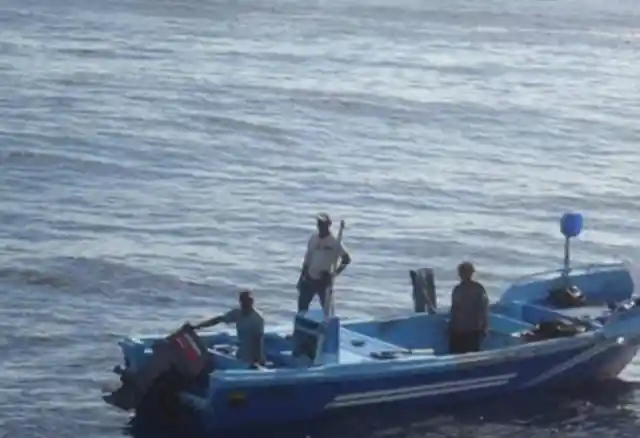
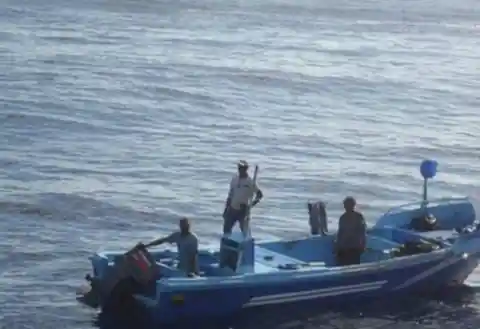
Willy reported the emergency right away to the Chiapas authorities. A search boat was sent out to look for the men, but without an exact location of their whereabouts, it proved to be very difficult to find them. Eventually, an airborne search team was launched, which spent about 48 hours looking for José Alvarenga’s boat but owing to poor visibility from the weather, the search was called off. It was simply too hard to look for any objects in the water with such poor weather conditions.
Alvarenga was so angry at himself and the situation that he started throwing objects overboard including the GPS and radio. He even took the giant club he used to club large fish and hit the motor out of frustration. In the meantime, everyone on land was waiting to hear some news about the two missing fishermen, but to no avail. Little did Alvarez and Córdoba know, people quickly began to assume that they would never return. Was there any hope?
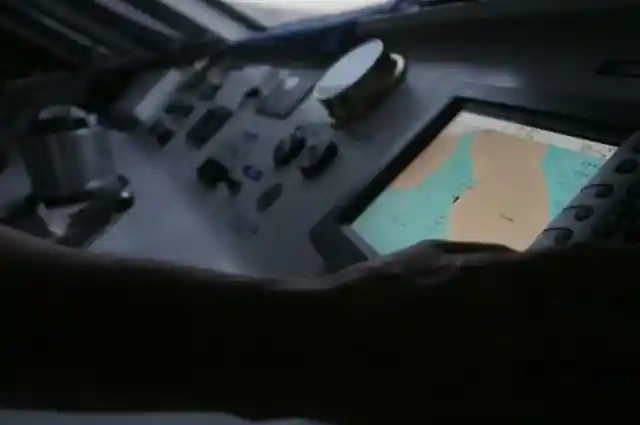
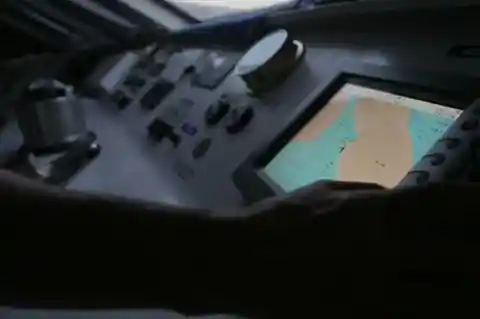
Alvarenga was so angry at himself and the situation that he started throwing objects overboard including the GPS and radio. He even took the giant club he used to club large fish and hit the motor out of frustration. In the meantime, everyone on land was waiting to hear some news about the two missing fishermen, but to no avail. Little did Alvarez and Córdoba know, people quickly began to assume that they would never return. Was there any hope?
When the stranded fishermen realized that no help was on its way, they knew they had to think of another plan. The weather was still very bad, so for the first few days, they had to just keep the boat intact. As the waves crashed against the boat, Alvarenga and Córdoba began to work as a team. It was extremely frightening when a wave launched them high into the air and sent them crashing back down. What’s more, their beach sandals didn’t give them enough grip on the boat deck. While all of this was going on, the men’s first painful decision was to throw their valuable catch into the ocean as it was weighing down the vessel. One by one, they emptied the cooler box of the all the carcasses, fearing the blood would attract sharks.
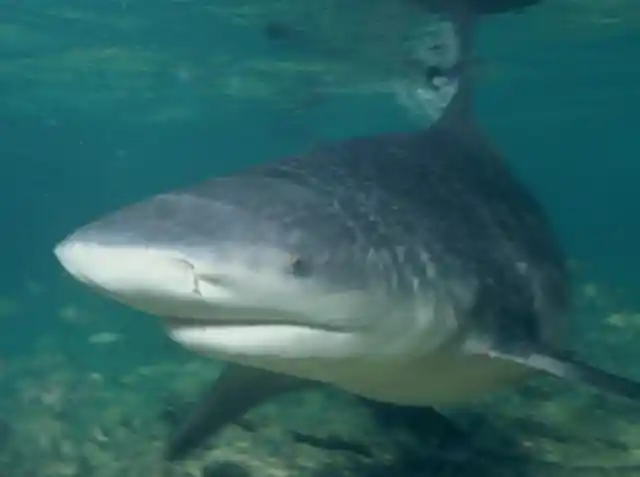
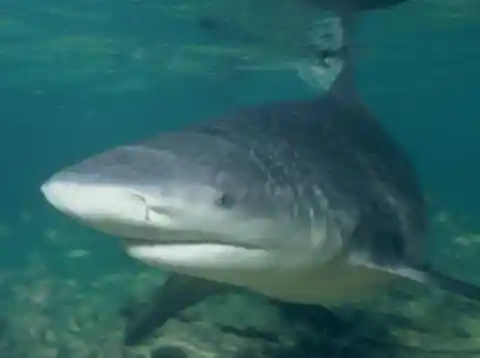
When the stranded fishermen realized that no help was on its way, they knew they had to think of another plan. The weather was still very bad, so for the first few days, they had to just keep the boat intact. As the waves crashed against the boat, Alvarenga and Córdoba began to work as a team. It was extremely frightening when a wave launched them high into the air and sent them crashing back down. What’s more, their beach sandals didn’t give them enough grip on the boat deck. While all of this was going on, the men’s first painful decision was to throw their valuable catch into the ocean as it was weighing down the vessel. One by one, they emptied the cooler box of the all the carcasses, fearing the blood would attract sharks.
For the first few days as castaways, the men used standard survival techniques to endure the difficult conditions. After they tossed out the fish, they also had to get rid of the ice and gasoline. Luckily, they had the three buckets to bail the water out of the boat, hour after hour in a repetitive motion. In order to keep them afloat, Alvarenga tied 50 buoys together as an improvised sea anchor to provide stability. During the nights, temperatures dropped drastically, so to ward off hypothermia from their soaking wet clothes, the men huddled together and wrapped their legs around one another under the giant cooler to generate heat. Their hands were so cold that they couldn’t even make a fist. When a wave came crashing in, one of the men would leave the cooler to empty the water out of the boat.
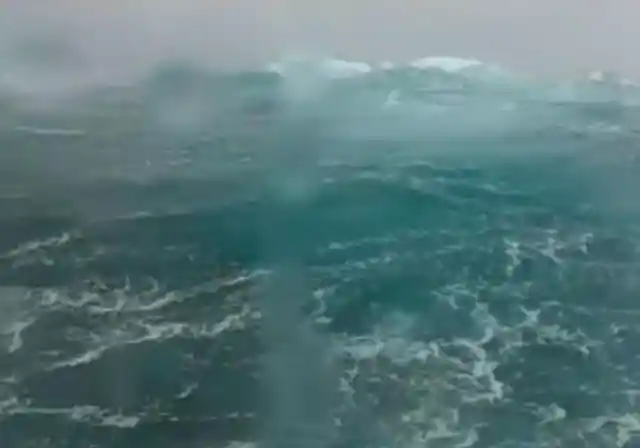
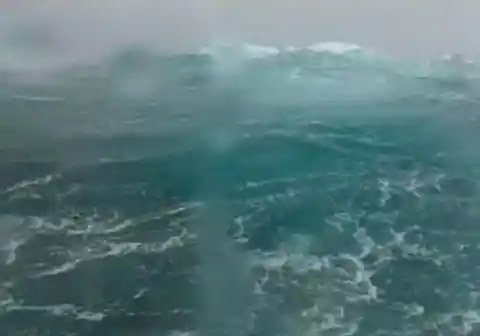
For the first few days as castaways, the men used standard survival techniques to endure the difficult conditions. After they tossed out the fish, they also had to get rid of the ice and gasoline. Luckily, they had the three buckets to bail the water out of the boat, hour after hour in a repetitive motion. In order to keep them afloat, Alvarenga tied 50 buoys together as an improvised sea anchor to provide stability. During the nights, temperatures dropped drastically, so to ward off hypothermia from their soaking wet clothes, the men huddled together and wrapped their legs around one another under the giant cooler to generate heat. Their hands were so cold that they couldn’t even make a fist. When a wave came crashing in, one of the men would leave the cooler to empty the water out of the boat.
The choppy waters drove the boat in random directions, and without any navigation equipment, Alvarenga and Córdoba had no idea where they were anymore. With hardly any resources left like bait or hooks, Alvarenga had to adopt a new fishing technique. Without putting much thought into it, Alvarenga kneeled against the edge of the boat and placed both of his hands in the water up to his shoulders while his eyes scanned for sharks. When a fish swam through, he quickly slammed his arms tight against his chest and gripped the scales of the fish using his nails as hooks. Córdoba would then clean and slice the fish into strips with the fishing knife, and then dry the raw pieces out in the sun. Alvarenga even caught turtles and flying fish.
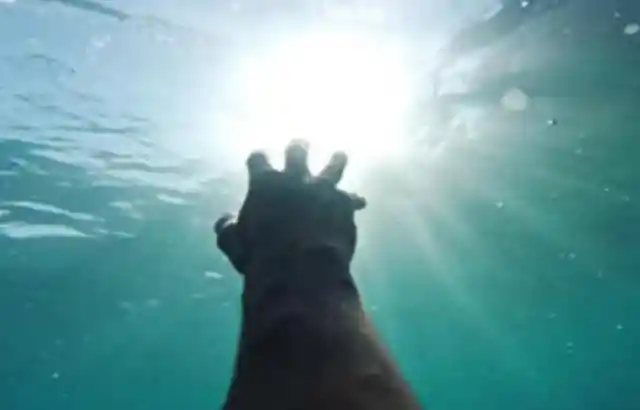
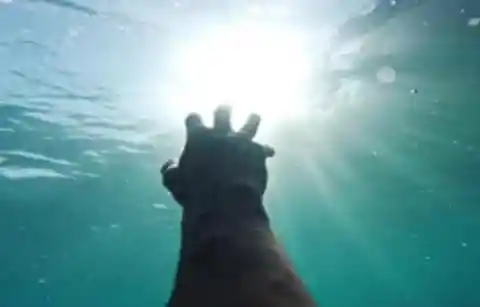
The choppy waters drove the boat in random directions, and without any navigation equipment, Alvarenga and Córdoba had no idea where they were anymore. With hardly any resources left like bait or hooks, Alvarenga had to adopt a new fishing technique. Without putting much thought into it, Alvarenga kneeled against the edge of the boat and placed both of his hands in the water up to his shoulders while his eyes scanned for sharks. When a fish swam through, he quickly slammed his arms tight against his chest and gripped the scales of the fish using his nails as hooks. Córdoba would then clean and slice the fish into strips with the fishing knife, and then dry the raw pieces out in the sun. Alvarenga even caught turtles and flying fish.
Alvarenga and Córdoba had an ocean-full of fish, other marine life, and even seabirds at their disposal, but there was nothing available to quench their thirst. Alvarenga was well-aware of the dangers of drinking seawater and how it could destroy their kidneys and cause dehydration. This meant the men had to drink their own urine or drink the blood from the turtles they had caught. Alvarenga believed the urine would provide them with a bit of hydration, but in fact, it was just exacerbating their longing for water.
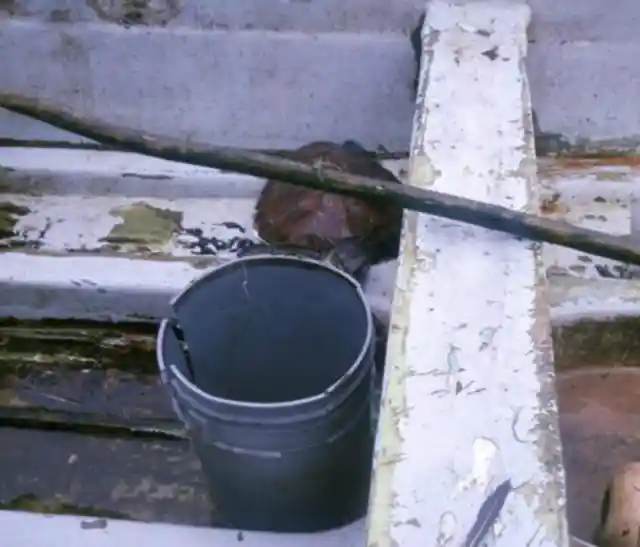
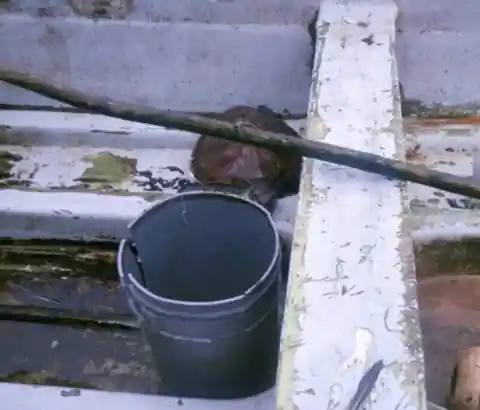
Alvarenga and Córdoba had an ocean-full of fish, other marine life, and even seabirds at their disposal, but there was nothing available to quench their thirst. Alvarenga was well-aware of the dangers of drinking seawater and how it could destroy their kidneys and cause dehydration. This meant the men had to drink their own urine or drink the blood from the turtles they had caught. Alvarenga believed the urine would provide them with a bit of hydration, but in fact, it was just exacerbating their longing for water.
After two weeks of being stranded, the men heard the sound of splatting while resting in the icebox. They counted their blessings when the discovered it was rain and ran across the deck to collect the rainwater using the collection system they designed with buckets and bottles. They positioned their mouths towards the sky so they could drink and taste the freshwater and even stripped their clothes to shower in the deluge of rainwater. They were so happy to drink the water but promised to ration the precious commodity very carefully.
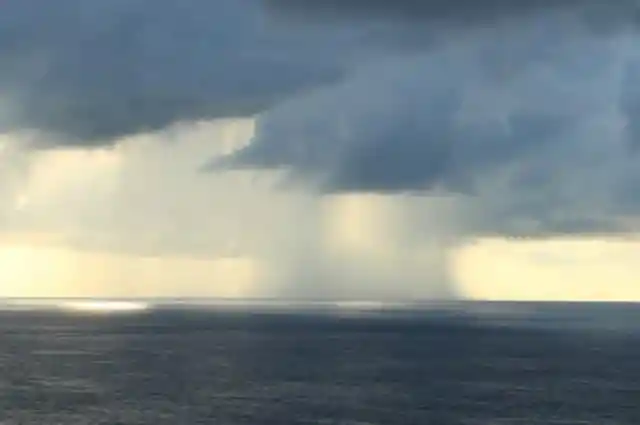
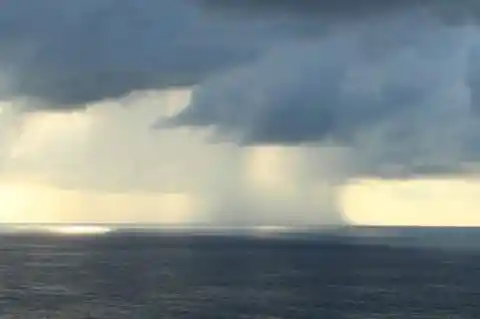
After two weeks of being stranded, the men heard the sound of splatting while resting in the icebox. They counted their blessings when the discovered it was rain and ran across the deck to collect the rainwater using the collection system they designed with buckets and bottles. They positioned their mouths towards the sky so they could drink and taste the freshwater and even stripped their clothes to shower in the deluge of rainwater. They were so happy to drink the water but promised to ration the precious commodity very carefully.
When days turned into weeks, and weeks turned into months, the castaways continued to survive on the food they caught, hoping they’d catch a break. They even ate their own fingernails at one point. Alvarenga also caught jellyfish, putting them straight into his mouth to swallow them whole. It would burn his throat, but they were running out of options and it helped to stave off his hunger. The pollution and garbage floating in the ocean also came to their disposal. Some of the rubbish bags Alvarenga and Córdoba found were filled with wads of chewed gum, rotten carrots and cabbage, and even a carton of rancid milk.
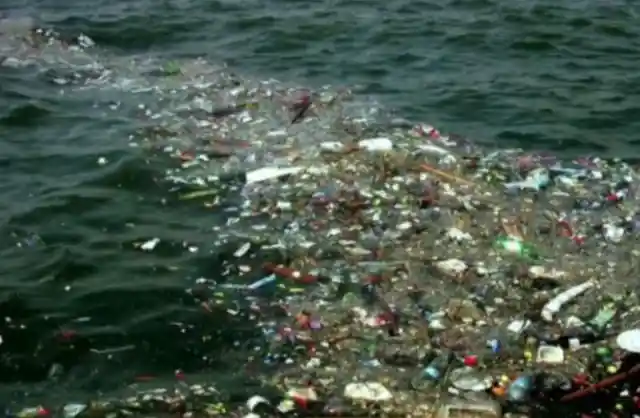
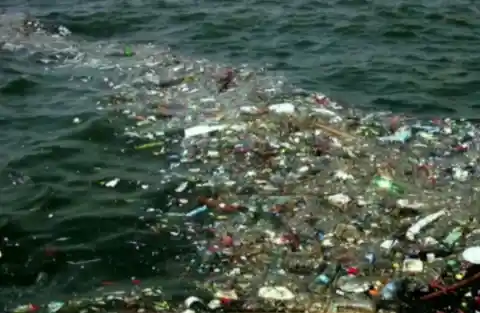
When days turned into weeks, and weeks turned into months, the castaways continued to survive on the food they caught, hoping they’d catch a break. They even ate their own fingernails at one point. Alvarenga also caught jellyfish, putting them straight into his mouth to swallow them whole. It would burn his throat, but they were running out of options and it helped to stave off his hunger. The pollution and garbage floating in the ocean also came to their disposal. Some of the rubbish bags Alvarenga and Córdoba found were filled with wads of chewed gum, rotten carrots and cabbage, and even a carton of rancid milk.
In the rare moments when their feelings of starvation were relieved with rotten cabbage or dead turtles, the men would have deep conversations about their lives and their mothers. They recalled how badly they behaved as youngsters and how much grief they put their mothers through, asking God to forgive them for being bad sons. Alvarenga and Córdoba also made a pact. If Alvarenga survived, he would go back to Chiapas and tell Córdoba’s mother, who was remarried to an evangelical preacher, that he was so terribly sorry he couldn’t say goodbye, but that he was with God now. If Córdoba survived, he’d have to go to El Salvador to visit Alvarenga’s parents.
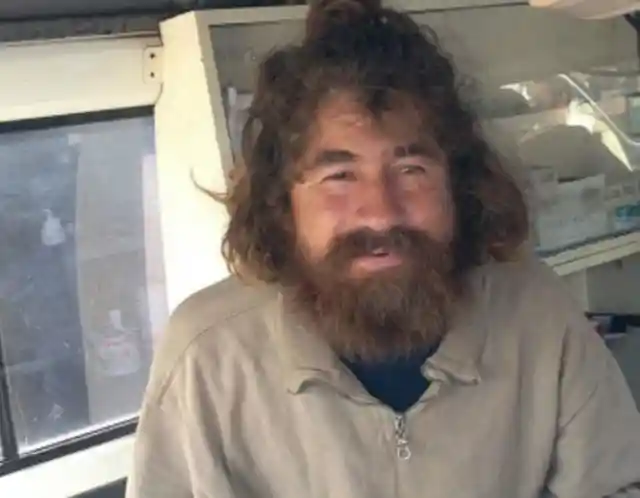
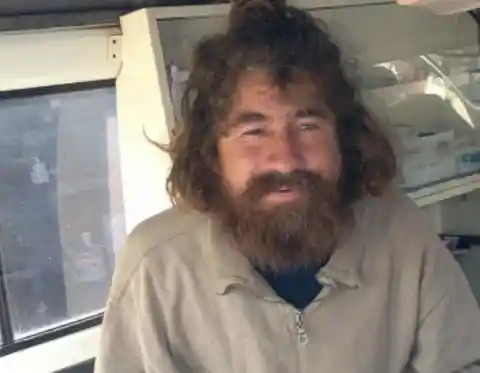
In the rare moments when their feelings of starvation were relieved with rotten cabbage or dead turtles, the men would have deep conversations about their lives and their mothers. They recalled how badly they behaved as youngsters and how much grief they put their mothers through, asking God to forgive them for being bad sons. Alvarenga and Córdoba also made a pact. If Alvarenga survived, he would go back to Chiapas and tell Córdoba’s mother, who was remarried to an evangelical preacher, that he was so terribly sorry he couldn’t say goodbye, but that he was with God now. If Córdoba survived, he’d have to go to El Salvador to visit Alvarenga’s parents.
Right from the beginning, Córdoba would cry a lot and fell into a deep depression. He completely shut down and lost hope they’d ever survive. At around two months in, he began refusing to eat. Alvarenga had become used to eating turtles and fish, but Córdoba was in a mental and physical decline. Córdoba got really sick from eating raw seabirds and turtles and eventually stopped eating anything. He gripped his bottle of water in his hands, but slowly he lost all energy and the will to live. Alvarenga would place tiny pieces of meat in his mouth, but he’d clench his mouth closed.
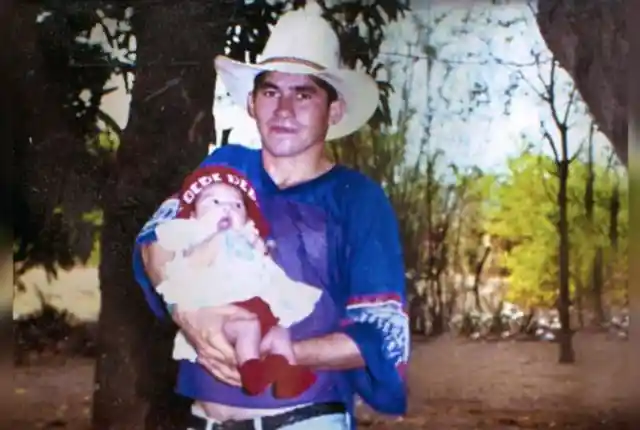
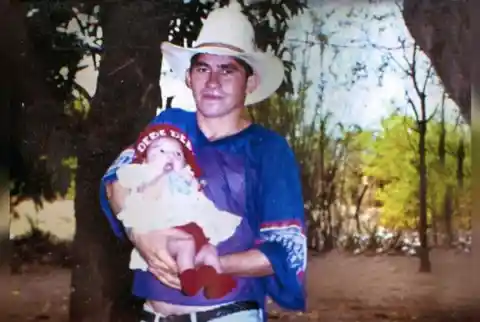
Right from the beginning, Córdoba would cry a lot and fell into a deep depression. He completely shut down and lost hope they’d ever survive. At around two months in, he began refusing to eat. Alvarenga had become used to eating turtles and fish, but Córdoba was in a mental and physical decline. Córdoba got really sick from eating raw seabirds and turtles and eventually stopped eating anything. He gripped his bottle of water in his hands, but slowly he lost all energy and the will to live. Alvarenga would place tiny pieces of meat in his mouth, but he’d clench his mouth closed.
One morning Córdoba murmured, “I am dying, I am dying, I am almost gone.” Alvarenga suggested they take a nap to forget about it and tried to give him some water, but Córdoba wouldn’t swallow it. A few minutes later, his body convulsed and tensed up. Alvarenga panicked and begged his friend not to give up and to fight for his life. “What am I going to do here alone,” he screamed. However, it was too late and Córdoba passed away. At first, Alvarenga refused to accept it. The next day he asked Córdoba how his sleep was and answered his own questions saying, “I slept good, and you? Have you had breakfast?” It took six days for Alvarenga to come to turns with the death and to give Córdoba a burial at sea by washing and undressing him. When he pushed the corpse off board, he fainted from the pain of losing his friend. He put on Córdoba’s red shirt, which had a skull and crossbones pattern.
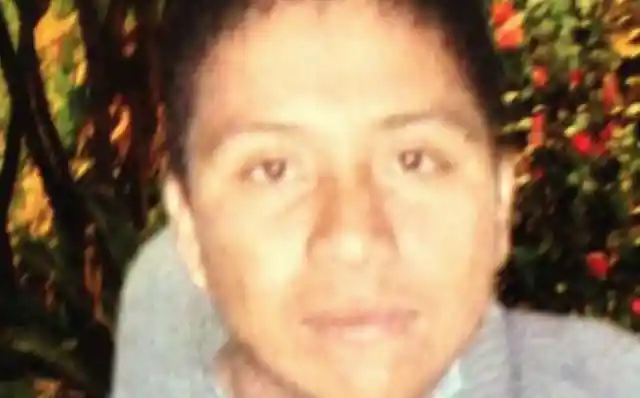
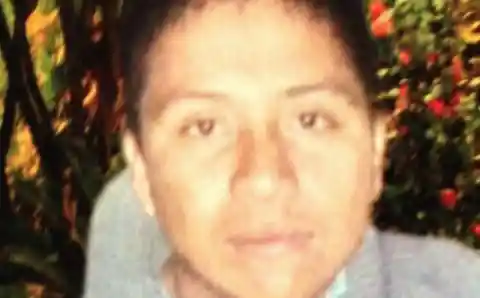
One morning Córdoba murmured, “I am dying, I am dying, I am almost gone.” Alvarenga suggested they take a nap to forget about it and tried to give him some water, but Córdoba wouldn’t swallow it. A few minutes later, his body convulsed and tensed up. Alvarenga panicked and begged his friend not to give up and to fight for his life. “What am I going to do here alone,” he screamed. However, it was too late and Córdoba passed away. At first, Alvarenga refused to accept it. The next day he asked Córdoba how his sleep was and answered his own questions saying, “I slept good, and you? Have you had breakfast?” It took six days for Alvarenga to come to turns with the death and to give Córdoba a burial at sea by washing and undressing him. When he pushed the corpse off board, he fainted from the pain of losing his friend. He put on Córdoba’s red shirt, which had a skull and crossbones pattern.
Alvarenga was terrified of being alone. He blamed himself for bringing Córdoba along with him on the trip and for being alive when his companion didn’t make it. He wanted to take his own life, but he couldn’t bring himself to do that as a religious person. To distract himself, Alvarenga let his imagination go wild. He paced the boat to pretend he was walking through beautiful cities in the world while talking to beautiful women and feasting on delicious food. He mastered the art of turning his loneliness into a fantasy world instead of sitting on the boat waiting to die. When he spotted large container ships in the distance, he got so excited and tried to wave them down, but with no sign of activity on deck, they just disappeared into the horizon.


Alvarenga was terrified of being alone. He blamed himself for bringing Córdoba along with him on the trip and for being alive when his companion didn’t make it. He wanted to take his own life, but he couldn’t bring himself to do that as a religious person. To distract himself, Alvarenga let his imagination go wild. He paced the boat to pretend he was walking through beautiful cities in the world while talking to beautiful women and feasting on delicious food. He mastered the art of turning his loneliness into a fantasy world instead of sitting on the boat waiting to die. When he spotted large container ships in the distance, he got so excited and tried to wave them down, but with no sign of activity on deck, they just disappeared into the horizon.
There’s no doubt that Alvarenga got the clearest view of the stars while lost deep in the ocean. He also noticed that the storms became more manageable and shorter the further out to sea he drifted. He used the phases and cycle of the waxing and waning of the moon to keep track of time, which his grandfather taught him how to do when he was just a boy. As far as he knew, Alvarenga was adrift as a castaway for at least 14 lunar cycles since the beginning of the fishing trip. This meant he had been alone for 10 months since Córdoba died.
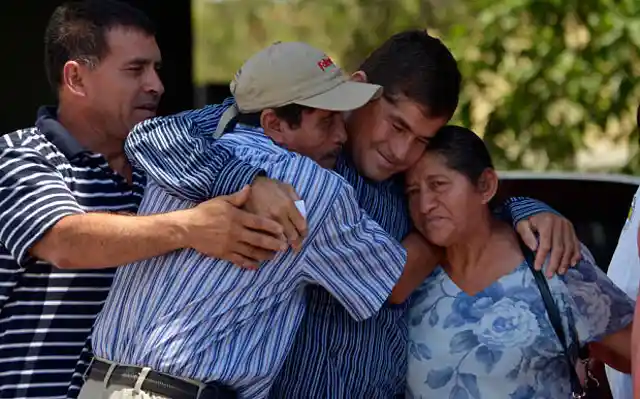
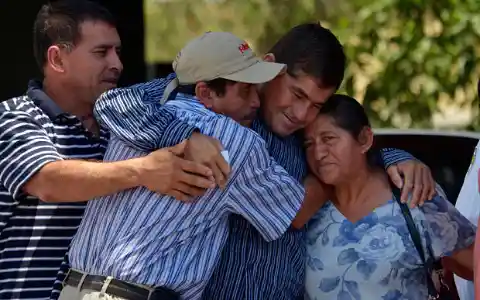
There’s no doubt that Alvarenga got the clearest view of the stars while lost deep in the ocean. He also noticed that the storms became more manageable and shorter the further out to sea he drifted. He used the phases and cycle of the waxing and waning of the moon to keep track of time, which his grandfather taught him how to do when he was just a boy. As far as he knew, Alvarenga was adrift as a castaway for at least 14 lunar cycles since the beginning of the fishing trip. This meant he had been alone for 10 months since Córdoba died.
While floating along the smooth currents one morning, Alvarenga looked up to see a sky full of birds, and when he looked straight ahead, he spotted a small tropical atoll, no bigger than a football field, in the middle of the turquoise waters. At first, he thought he was hallucinating. Terrified of being pulled back or pulled further away, Alvarenga cut the buoys in order to lead the boat to the island, which looked wild and uninhabited. It was a scary move because, with no anchor, even a mild current could flip the boat over. He had no choice and took the gamble so he could pick up speed.


While floating along the smooth currents one morning, Alvarenga looked up to see a sky full of birds, and when he looked straight ahead, he spotted a small tropical atoll, no bigger than a football field, in the middle of the turquoise waters. At first, he thought he was hallucinating. Terrified of being pulled back or pulled further away, Alvarenga cut the buoys in order to lead the boat to the island, which looked wild and uninhabited. It was a scary move because, with no anchor, even a mild current could flip the boat over. He had no choice and took the gamble so he could pick up speed.
In January of 2014, a couple was living on Tile Islet, which is a little island that is part of the Marshall Islands. The couple’s names were Emi Libokmeto and Russel Laikidrik.
Considering the size and the remoteness of this island, it is unsurprising that any visitors were an unusual occurrence, especially visitors whom Emi and Russel hadn’t invited first. They therefore received the shock of their lives when, as they were husking and drying coconuts, they saw someone coming out of the water…
In January of 2014, a couple was living on Tile Islet, which is a little island that is part of the Marshall Islands.


The couple’s names were Emi Libokmeto and Russel Laikidrik.
Considering the size and the remoteness of this island, it is unsurprising that any visitors were an unusual occurrence, especially visitors whom Emi and Russel hadn’t invited first. They therefore received the shock of their lives when, as they were husking and drying coconuts, they saw someone coming out of the water…
Unfortunately, now Alvarenga is on land, his troubles are still not over. He had a falling out with the lawyer he had hired to help him manage things after his return, and he instead hired a law firm based in the US; his former lawyer, whose name is Perlera, is now suing him for breach of contract.
His former companion Córdoba’s family have been insisting that they are entitled to a cut of any proceeds he gets from the story of his experiences at sea. They also hired Perlera to represent them.
Unfortunately, now Alvarenga is on land, his troubles are still not over.
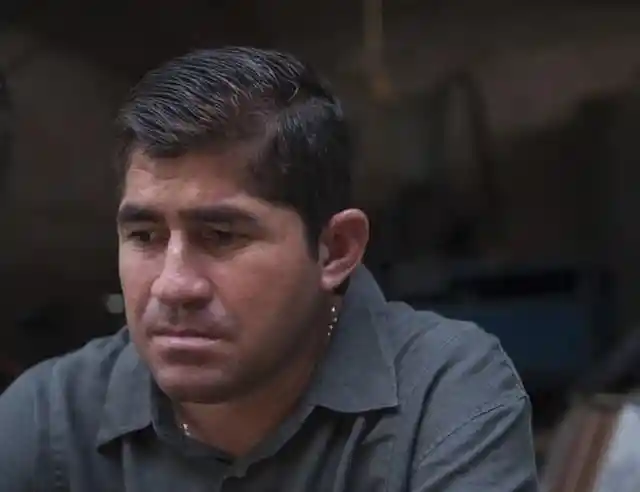
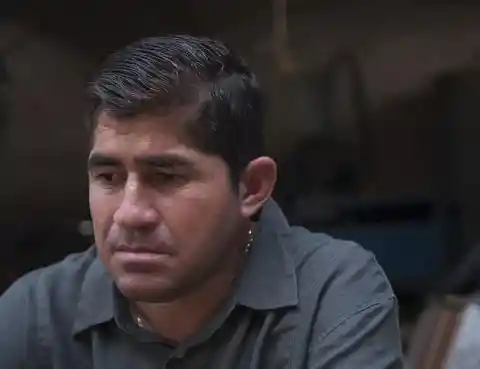
He had a falling out with the lawyer he had hired to help him manage things after his return, and he instead hired a law firm based in the US; his former lawyer, whose name is Perlera, is now suing him for breach of contract.
His former companion Córdoba’s family have been insisting that they are entitled to a cut of any proceeds he gets from the story of his experiences at sea. They also hired Perlera to represent them.